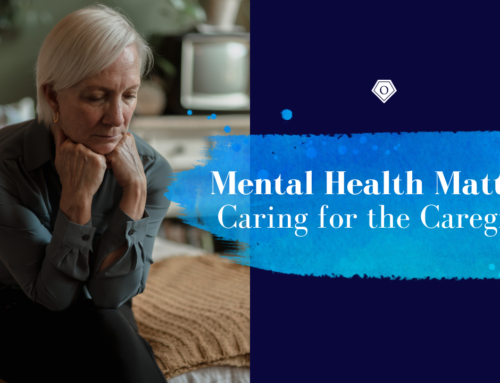The most valuable thing you can give another person is your time.
For caregivers, a lot of their time is consumed by their aging loved-one’s physical needs. It can be easy to tune out of conversations. Active listening can have emotional benefits for both parties. Psychology Today shared that adults in their sixties that give useful advice experience their own life as more meaningful.
“A nationally sampled American survey of 2,583 adults found that 90 percent of people in their sixties who reported having given advice in the previous year to friends, family, neighbors, or strangers also reported considering their lives meaningful.” – Psychology Today
Retirement and physical limitations can make older adults feel irrelevant. Giving advice can help the elderly feel connected. By the time people reach their seventies they have navigated many life experiences. Family members may be surprised by the advice they receive!
Steps for Active Listening:
- Eye Contact – Eye contact shows you are listening.
- Wait – Wait until the speaker is done to respond or ask questions.
- Summarizing – Summarize what you heard to make sure you understand the speaker fully.
- Minimal Encouragers – “What happened then?”
- Reflecting – Instead of repeating words consider saying, “This seems really important to you.”
- Emotion Labeling – Put feelings to words. For example, “I’m sensing frustration, sadness or worry”.
- Probing – Ask questions to draw the person deeper into the topic.
- Validation – Listen openly with empathy.
- Effective Pause – Pause for emphasis and allow the information to be absorbed.
- Silence – Allow for comfortable silences to slow down the exchange.
- “I” Messages – I statements make you the focus not the person.
- Redirecting – If the conversation gets defensive, it’s time to shift the conversation to another subject.
- Consequences – Take queues from the person speaking. “What happened the last time you stopped taking medication?”
Road Blockers:
- “Why” questions. They tend to make people defensive.
- Quick reassurance, saying things like, “Don’t worry about that.”
- Advising — “I think the best thing for you is to move to assisted living.”
- Digging for information and forcing someone to talk about something they would rather not talk about.
- Patronizing — “You poor thing, I know just how you feel.”
- Preaching — “You should. . .” Or, “You shouldn’t. . .”
- Interrupting — Shows you aren’t interested in what someone is saying.
Asking for advice is a simple way to show your loved-one that their opinion is still important and relevant. Active listening forms deep bonds between both speaker and listener. When relationships are strengthened there is an opportunity for healing and reconciliations for both parties.






